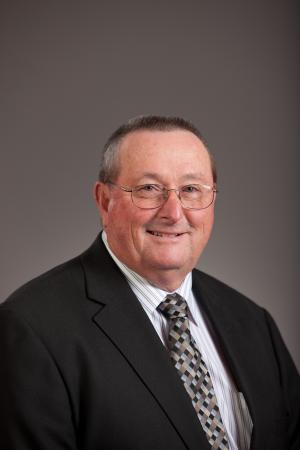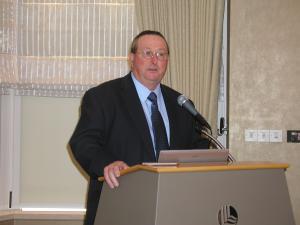After 15 years serving on U.S. Grains Council Advisory Teams, committees and the board of directors, Iowan Darrel McAlexander believes that the Council’s greatest strength is its people.
“Members and staff of agribusiness, barley, corn and sorghum, our relationships are critical,” he said.
“Visiting a foreign country, we rely on expertise from the staff and members, but there’s also a lot more credibility when our farmers speak for our industry. And talking with the people who use our grain we find that we have more in common than we have differences.”
McAlexander remembers vividly being asked early in his service on the Iowa Corn Promotion Board whether he was interested in traveling on a Pioneer mission to Panama, Mexico and Cuba.
“That really opened my eyes,” he said. “I started to see the value of relationships with our customers.”
That led him to chair both the Council’s market development committee and later the grain trade committee, where he was especially active in promoting distiller’s dried grains with solubles in Mexico. He also chaired the Council’s Biotechnology Advisory Team, speaking on the importance of new agricultural technology to groups in Japan, Mexico and South Korea.
He’s excited now about the MAIZALL initiative.
“When I was the biotechnology chairman, we talked about like-minded countries working together on such issues, and now MAIZALL is bringing Argentina, Brazil and the United States together to do it,” McAlexander said.
Now serving on the Membership and Communications Advisory Team, McAlexander credits the Council for key leadership on projects like MAIZALL.
“I believe the Council has the golden key that opens marketplaces to barley, corn, sorghum and agribusiness,” he said.
“The Council allows us to move grain into foreign countries so they can start to see its benefits in developing their livestock sectors. Then as they develop a taste for grain-fed meat, the U.S. Meat Export Federation can come in and develop markets for U.S. meat.
“We can build grain markets and open up meat markets with our grain,” he concluded.



